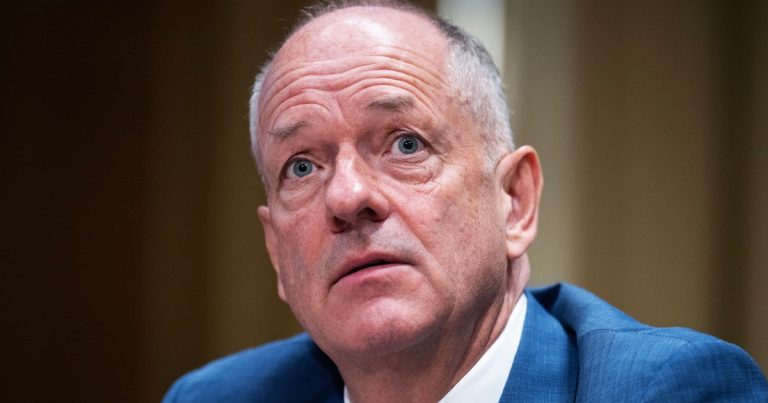The CEO of UnitedHealth Group said Thursday that flaws in the U.S. health care system must be fixed.
In the company’s first earnings conference call since the fatal shooting of UnitedHealth Executive Brian Thompson, CEO Andrew Witty said that while the United States provides cutting-edge care in many ways, there is systemic flaws that contribute to increasing health costs for the country’s inhabitants. .
“The health care system needs to work better,” he said, adding that the “variety” of state, federal and private sector structures and programs have created a “confusing,” “complex” and “expensive”.
Witty began the call by expressing gratitude for the condolences received following Thompson’s death.
“Many of you knew Brian personally,” Witty said, referring to the investors on the call. “You knew how much he meant to all of us and how much he dedicated his time to helping make the health care system work better for all the people we have the privilege to serve.
The suspect charged with Thompson’s murder, Luigi Mangione, is currently being held without bail in Brooklyn. He faces capital murder charges, to which he has pleaded not guilty.
While UnitedHealth’s previous earnings calls have included broad remarks about the company’s desire to deliver better outcomes for its customers, Witty’s comments Thursday acknowledged the broader debate about the state of health care in the United States that emerged in the wake of the Thompson shooting.
Witty’s remarks come as United Health reported record revenue for 2024. Shortly before Thompson’s death, its stock price was at an all-time high.
Before discussing the company’s financial performance, Witty addressed head-on some of the shortcomings of America’s profit-driven health care model.
“Participants in the system,” he says, “take advantage of the high costs of health care. While lower prices and improved services can be beneficial for consumers and patients, Witty said, they can “threaten the revenue streams of organizations that rely on higher prices for care.”
Witty did not explain the extent to which UnitedHealth itself benefited from such circumstances.
When it comes to the cost of medications, for example, he said health care participants in the United States “pay disproportionately more than people in other countries,” citing the cost of the weight-loss drug GLP, which, according to him, costs about a tenth of its price in Europe. the United States
Witty directly blamed pharmaceutical companies for discrepancies like these, while also saying that UnitedHealth’s pharmacy benefit managers (PBMs), who help negotiate retail drug prices and who are under increasing public pressure for their role in setting drug prices, continue to work to pass on the savings. to customers.
UnitedHealth’s improved PBM performance “will help bring more transparency to those who are really responsible for drug prices in this country: the pharmaceutical companies themselves,” Witty said, without elaborating.
In a statement released Thursday evening, a representative for PhRMA, which represents pharmaceutical companies, pushed back on Witty’s assertion.
“Congress, the FTC, state attorneys general and others who have looked into this issue have all come to the same conclusion that PBM abuses drive up costs,” said Alex Schriver, senior vice president of PhRMA Public Affairs, in an email.
“Investigations found that large insurance companies and PBMs were charging thousands of different prices for the same drugs at the same time. The FTC just released a second report showing that the same companies are marking up drugs in their own pharmacies 10 times or more.”
“These large health care conglomerates make billions in profits by controlling the drugs people receive, the price they pay, and the pharmacies they can use. That’s why there is unprecedented bipartisan support for held accountable.”
For the quarter, UnitedHealth reported worse-than-expected results, sending its shares down more than 4% on Thursday.
“Health care in every country is complex and the solutions are not simple, but you have to expect this company to continue working on it,” Witty said.
CORRECTION (January 16, 2025, 9 p.m. ET): A previous version of this article incorrectly stated the cost of the weight loss drug BPL. It represents a tenth of its American price in Europe, and not a tenth less.


